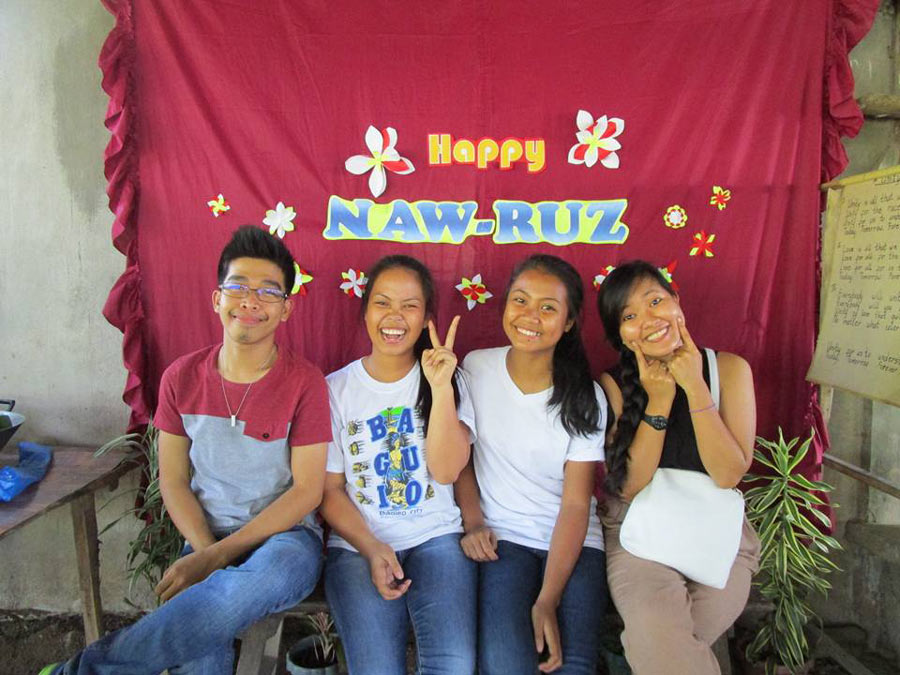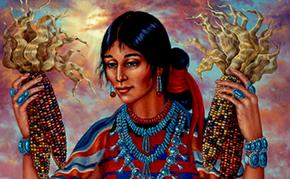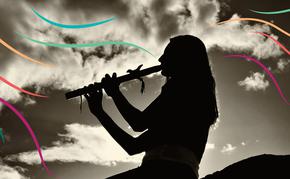The views expressed in our content reflect individual perspectives and do not represent the authoritative views of the Baha'i Faith.
“O friends! It behoveth you to refresh and revive your souls through the gracious favours which in this Divine, this soul-stirring Springtime are being showered upon you,” wrote Baha’u’llah, the prophet and founder of the Baha’i Faith.
Did you know that today is the world’s oldest holiday?
This year, March 20 marks the Vernal Equinox in the Earth’s Northern Hemisphere and the Autumnal Equinox in the South—that day when the sun’s light strikes the Equator directly and illuminates every continent equally.
RELATED: Spring, Change & Renewal
You would think that the world’s people would celebrate this day—and it turns out they do. Called Naw-Ruz, Nowruz or New Year’s by Zoroastrians, Alewites, Sufis, some Muslims, and Baha’is, this secular holiday has been observed around the world for more than three thousand years. (In Farsi, the Persian language, Naw-Ruz means “new year” or “new day.”) Naw-Ruz probably originated with Zoroaster (also known as Zarathustra), the monotheistic messenger who founded Zoroastrianism ten centuries before Christ.

The UN’s General Assembly in 2010 recognized the International Day of Nowruz, describing it as a spring festival of Persian origin which has been celebrated for over 3,000 years. During the meeting of The Inter-governmental Committee for the Safeguarding of the Intangible Heritage of the United Nations, held between 28 September – 2 October 2009 in Abu Dhabi, Nowruz was officially registered on the UNESCO List of the Intangible Cultural Heritage of Humanity.
RELATED: Happy Baha’i New Year!!
The United Nations also now recognizes March 20 as World Happiness Day, and has just issued a report that explores the elements of happiness.
Baha’is celebrate Naw-Ruz, New Year’s Day, on this equinox every year. Like most happy holy days, the Baha’i New Year usually includes singing, eating, dancing and socializing. Because Naw-Ruz also marks the end of the 19-day Baha’i Fast, it brings a warm, diverse and fascinating group of people together to eat with one another, celebrate, have fun, enjoy each other’s company and truly welcome the exciting, unlimited possibilities of a new year.

In 2016, 173 years after the beginnings of the Baha’i Faith, Baha’is all over the world will celebrate Naw-Ruz as the annual, celebratory feast of renewal, the spiritual and physical springtime. As flowers bloom and bushes bud out and birds trill in the trees, the Baha’is will smile and laugh and hug each other warmly.
But for Baha’is, Naw-Ruz isn’t only a party – it serves as a symbolic reminder of the oneness of all the messengers of God, and the spiritual springtime they each brought to humanity. Abdu’l-Baha explains that Naw-Ruz represents the return of the Sun of Reality, when a re-awakening of the spirit occurs and the light of a new revelation shines equally upon the entirety of God’s creation:
…just as the solar cycle has its four seasons, the cycle of the Sun of Reality has its distinct and successive periods. Each brings its vernal season or springtime. When the Sun of Reality returns to quicken the world of mankind a divine bounty descends from the heaven of generosity. The realm of thoughts and ideals is set in motion and blessed with new life. Minds are developed, hopes brighten, aspirations become spiritual, the virtues of the human world appear with freshened power of growth and the image and likeness of God become visible in man. It is the springtime of the inner world…
In it the former springtime has returned, the world is resuscitated, illumined and attains spirituality; religion is renewed and reorganized, hearts are turned to God, the summons of God is heard and life is again bestowed upon man.

















Comments
Sign in or create an account
Continue with Facebookor